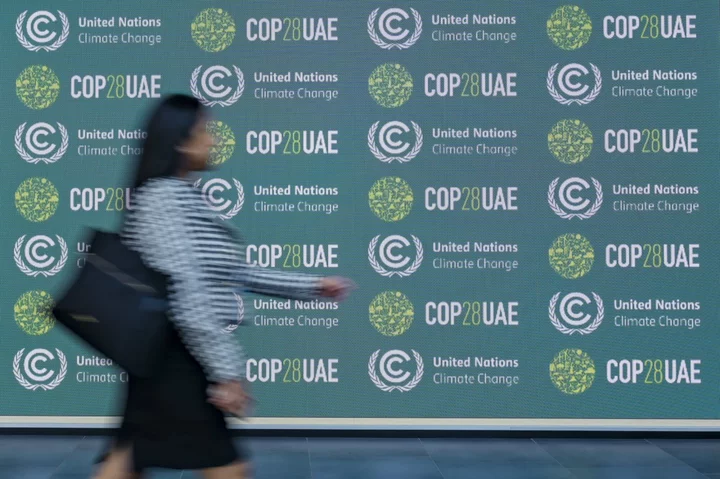European Union member states couldn’t agree on a deadline for phasing out fossil fuel subsidies when they met Monday in Luxembourg ahead of the COP28 climate summit in Dubai next month.
Environment ministers from the EU’s 27 member states agreed that negotiators should call on countries to end government support for dirty fuels “as soon as possible,” except for those that address energy poverty or a just transition to clean energy, according to the deal seen by Bloomberg.
In the run-up to the meeting, countries had considered attaching a date of either 2025 or 2030 to that call to action.
EU countries agreed that meeting the Paris Agreement target of limiting warming to 1.5C will require the global phase-out of unabated fossil fuels and that the global power system should be “fully or predominantly decarbonised” in the 2030s, leaving no room for coal power. The word “unabated” is seen as controversial by environmental groups for fear it could prolong fossil fuel use through carbon capture and storage technology.
“Would we have been able to go even further? Absolutely,” said Wopke Hoekstra, the EU’s climate commissioner. “And yet this is a union where, in the end, we create a mandate with 27 countries.”
The result will be seen by green groups as disappointing, since the EU is typically one of the most ambitious regions when it comes to tackling the causes of climate change. The 28th United Nations Conference of the Parties, known as COP28, is set to lay out what progress has been made to keeping global heating below 1.5C and what more needs to be done.
Read More: What Is COP28 and Why Is It Important?
Ministers also agreed to update the EU’s climate pledge, saying that the bloc could overachieve its 55% emissions reduction goal by 2030. But that was a weaker outcome than it could have been, with some countries pushing for a more explicit acknowledgment that the EU is on course for a 57% reduction. Italy and countries including Hungary and Poland had led opposition to such a move, saying it was too ambitious and confusing. Ministers likewise agreed on targets to slash emissions from heavy-duty vehicles.
The EU will also call to triple renewable energy capacity globally by the end of the decade and double the rate of energy efficiency improvements.
“We should have had even stronger language on fossil fuel subsidies,” Dan Jorgensen, Denmark’s minister for global climate action, told Bloomberg Green. “But nonetheless, this is the strongest mandate we have ever had from the EU.”
The key question now is whether the EU can mobilize support for phasing out fossil fuels and other measures to boost the pace of emissions cuts against a backdrop of high inflation and growing geopolitical risks.
“Europe delivers, we overachieve, we want to do more,” said Teresa Ribera, Spain’s environmental transition minister who was overseeing the talks. “But we need the others to do more too. It’s not just a question for Europeans.”
(Updates with comments from ministers and further details on EU targets for COP28.)

